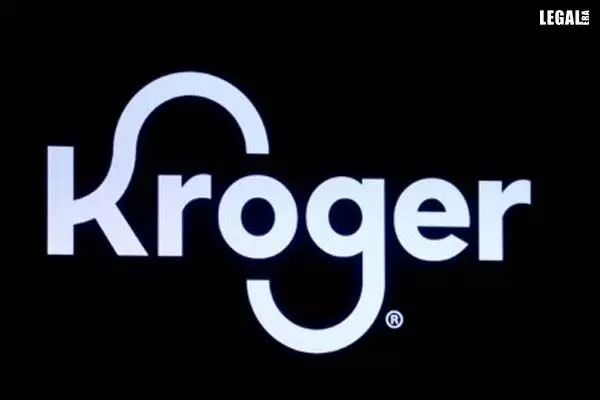- Home
- News
- Articles+
- Aerospace
- Artificial Intelligence
- Agriculture
- Alternate Dispute Resolution
- Arbitration & Mediation
- Banking and Finance
- Bankruptcy
- Book Review
- Bribery & Corruption
- Commercial Litigation
- Competition Law
- Conference Reports
- Consumer Products
- Contract
- Corporate Governance
- Corporate Law
- Covid-19
- Cryptocurrency
- Cybersecurity
- Data Protection
- Defence
- Digital Economy
- E-commerce
- Employment Law
- Energy and Natural Resources
- Entertainment and Sports Law
- Environmental Law
- Environmental, Social, and Governance
- Foreign Direct Investment
- Food and Beverage
- Gaming
- Health Care
- IBC Diaries
- In Focus
- Inclusion & Diversity
- Insurance Law
- Intellectual Property
- International Law
- IP & Tech Era
- Know the Law
- Labour Laws
- Law & Policy and Regulation
- Litigation
- Litigation Funding
- Manufacturing
- Mergers & Acquisitions
- NFTs
- Privacy
- Private Equity
- Project Finance
- Real Estate
- Risk and Compliance
- Student Corner
- Take On Board
- Tax
- Technology Media and Telecom
- Tributes
- Viewpoint
- Zoom In
- Law Firms
- In-House
- Rankings
- E-Magazine
- Legal Era TV
- Events
- Middle East
- Africa
- News
- Articles
- Aerospace
- Artificial Intelligence
- Agriculture
- Alternate Dispute Resolution
- Arbitration & Mediation
- Banking and Finance
- Bankruptcy
- Book Review
- Bribery & Corruption
- Commercial Litigation
- Competition Law
- Conference Reports
- Consumer Products
- Contract
- Corporate Governance
- Corporate Law
- Covid-19
- Cryptocurrency
- Cybersecurity
- Data Protection
- Defence
- Digital Economy
- E-commerce
- Employment Law
- Energy and Natural Resources
- Entertainment and Sports Law
- Environmental Law
- Environmental, Social, and Governance
- Foreign Direct Investment
- Food and Beverage
- Gaming
- Health Care
- IBC Diaries
- In Focus
- Inclusion & Diversity
- Insurance Law
- Intellectual Property
- International Law
- IP & Tech Era
- Know the Law
- Labour Laws
- Law & Policy and Regulation
- Litigation
- Litigation Funding
- Manufacturing
- Mergers & Acquisitions
- NFTs
- Privacy
- Private Equity
- Project Finance
- Real Estate
- Risk and Compliance
- Student Corner
- Take On Board
- Tax
- Technology Media and Telecom
- Tributes
- Viewpoint
- Zoom In
- Law Firms
- In-House
- Rankings
- E-Magazine
- Legal Era TV
- Events
- Middle East
- Africa
US Supreme Court Rejects Kroger’s Challenge To Grubhub Trademark Win

US Supreme Court Rejects Kroger’s Challenge To Grubhub Trademark Win
The Cincinnati-headquartered firm stated that the courts analyzed the risk of consumer confusion in starkly subjective ways
The US Supreme Court has turned down the request of supermarket chain Kroger to block the food-delivery company Grubhub's use of the ‘fork-and-knife’ logo based on allegations that it would cause confusion with the Kroger meal-kit service Home Chef logo.
The judges rejected Kroger's appeal of a lower court ruling that Grubhub's logo was not like Home Chef. Therefore, it did not justify granting an injunction prohibiting its use due to alleged marketplace confusion.
Grubhub is a subsidiary of Netherlands-based Just Eat Takeaway.com, which changed its logo to resemble its own mark, a silhouette of a house with a fork and knife in the centre, after buying the Chicago-based company in 2021.
On the other hand, Cincinnati-headquartered Kroger is the biggest grocer in the US by revenue. It sent Grubhub a cease-and-desist notice based on Home Chef's logo, which also features a fork and knife inside a house silhouette.
In 2021, Grubhub sued in Illinois federal court seeking a declaration that it did not violate Kroger's trademark rights.
Kroger responded with a request for a preliminary injunction against Grubhub using its new logo.
While a magistrate judge said consumer confusion justified an injunction against Grubhub, Judge Charles Norgle of the United States Court of Appeals for the Seventh Circuit disagreed and rejected Kroger's request.
The Chicago-based Court of Appeals affirmed Norgle's decision last year.
Judge John Lee stated, "We do not see how a consumer interacting with the Grubhub House logo could reasonably believe that she was engaging with Home Chef, particularly where the accused mark prominently features Grubhub's own brand name.”
However, Kroger told the judges that its case illustrated how courts analyzed the risk of consumer confusion in “starkly different, subjective ways,” creating "incomplete, unbalanced, and unpredictable trademark infringement decisions."



